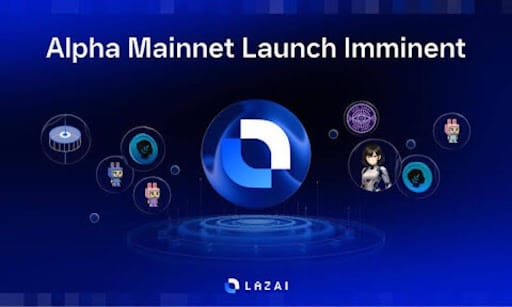The future of DeFi's money markets

As Bitcoin's rally pushes ahead, even its harshest detractors have been forced to mute their criticisms. Blockchain is the next frontier for financial applications, and with Bitcoin's market capitalization rivaling the GDP of some small countries, the world of finance is definitely in for some decentralization. Bitcoin's explosive growth finally has institutional investors perking their ears up to listen, but it's not necessarily the original cryptocurrency that's sparked their interest.
Decentralized Finance (DeFi) has been the name of the game for the last year, measuring record-breaking growth across multiple sectors. Since the start of last year, DeFi's Total Value Locked (TVL), or the total ETH locked into DeFi platforms, has grown from just under $700 million to over $50 billion today.
Among the many factors that have institutional investors drooling over DeFi are the historically low interest rates, the overall geopolitical instability, and the current inflation rate. Alternate investment vehicles like cryptocurrencies offer them a better option, especially since near-zero interest rates are expected to be the norm for the foreseeable future. DeFi money markets offer lending services with up to 8% interest on Bitcoin holdings, which can be incredibly helpful for investors who need to maintain cash flow without having to sell assets.
The traditional financial system defines money markets as sections of the economy responsible for issuing short-term funds. Primarily dealing with loans with terms of less than a year, they tend to offer services like borrowing, lending, and wholesale OTC trading. Money markets are complicated systems with expensive overheads and hidden fees, but they are crucial to our financial system's efficient functioning.
Money markets are composed of highly liquid assets as part of the broader financial market, and incentivize people to lend money short-term to be allocated to more productive causes. This benefits the market, making it more efficient and helping the institutions involved meet their financial goals.
Different kinds of securities comprise money markets, like certificates of deposits (CDs), mutual funds, repurchase agreements, and more. Unlike investments in capital markets, which have higher margins but are riskier, money market investments are often tagged with low interest rates since they are virtually risk-free and usually contain shares that cost $1 each.
To hedge against the currency risk of USD-based investments, some institutions have started using Bitcoin – and where the institutional investors go, the retail investors follow. Recent reports suggest over 60% of Bitcoin's circulating supply remains unmoved over the last year, but while BTC remains locked in place, DeFi is regularly creating systems to generate interest through trustless lending and borrowing services using smart contracts.
This makes their systems significantly more transparent, allowing investors to not only view the status of their funds but also track their on-chain movements. DeFi products also provide much higher returns on average, with some platforms even offering over 10% APY on deposits. From managing billions in assets to smart contract auditing services, the DeFi space is creeping into every area of the financial services industry, creating an infrastructure for money markets that's secure, scalable, and decentralized.
Hard protocols (to maintain)
Ethereum currently supports most of the available decentralized finance applications, but this has barred non-Ethereum-based tokens from participating in DeFi protocols. Despite having the largest market capitalization of any individual cryptocurrency, Bitcoin was only recently made available for use on DeFi platforms through Wrapped Bitcoin (WBTC).
However, all hope is not lost for other non-Ethereum tokens. Through platforms like Kava's Hard Protocol, participants can generate profits or 'yield farm' using assets like Bitcoin, XRP, and BNB. With funding from big names like Ripple, Arrington XRP Capital, and Digital Asset Capital Management, Kava has also announced plans to add support for ERC-20 tokens soon.
On April 8, 2021, the team launched the network's highly anticipated upgrade to Kava 5.1 and Hard Protocol Version 2. The upgrade allows participants to borrow at variable interest rates and distribute HARD tokens to asset suppliers and contributors. Along with the introduction of HARD Governance, which further enhanced the protocol's parameters based on the community's decisions.
In this manner, Hard Protocol V2 is quite similar to Compound, but with its in-house stablecoin protocols on Cosmos' interoperable blockchain ecosystem, Kava now offers a complete DeFi lending environment. The upgrade had initially been scheduled for launch earlier this year but was delayed due to the community not reaching a consensus on certain proposals.
Just prior to this milestone upgrade, Cosmos had announced the release of Stargate – an upgrade that enables their IBC (Inter-Blockchain Communication) interoperability systems. Cosmos had originally mentioned the IBC in its whitepaper, and fans of the network were happy to finally see one of its key components finally brought to life.
Decentralizing money
As the rest of the world continues to stockpile BTC, Kava lets Bitcoin investors generate cash flow without having to tokenize the asset on Ethereum or any other smart contract-based platform. Kava offers some of the industry's highest interest rates, and with DeFi already providing a better deal than most centralized options, investors are hopping on board.
Money markets are a fundamental part of the world's economy, and while most money market-related transactions occur between large banks or other financial institutions, these funds do often wriggle their way into consumer markets through mutual funds and other investment opportunities.
Finance is going decentralized, and the more institutional money begins funding projects in the space, the more robust, decentralized projects we're bound to have on our hands. The DeFi space isn't just risky – it's competitive. Blockchain apps are complex to code, and with potentially billions of dollars on the line, teams work hard to ensure each release's security.
DeFi isn't perfect; there have been and will continue to be cases where funds are lost or stolen by malicious users exploiting smart contract vulnerabilities. However, as projects continue to build and be built on blockchain technology, what the industry learns during this phase could be instrumental in constructing the future's decentralized economy.




